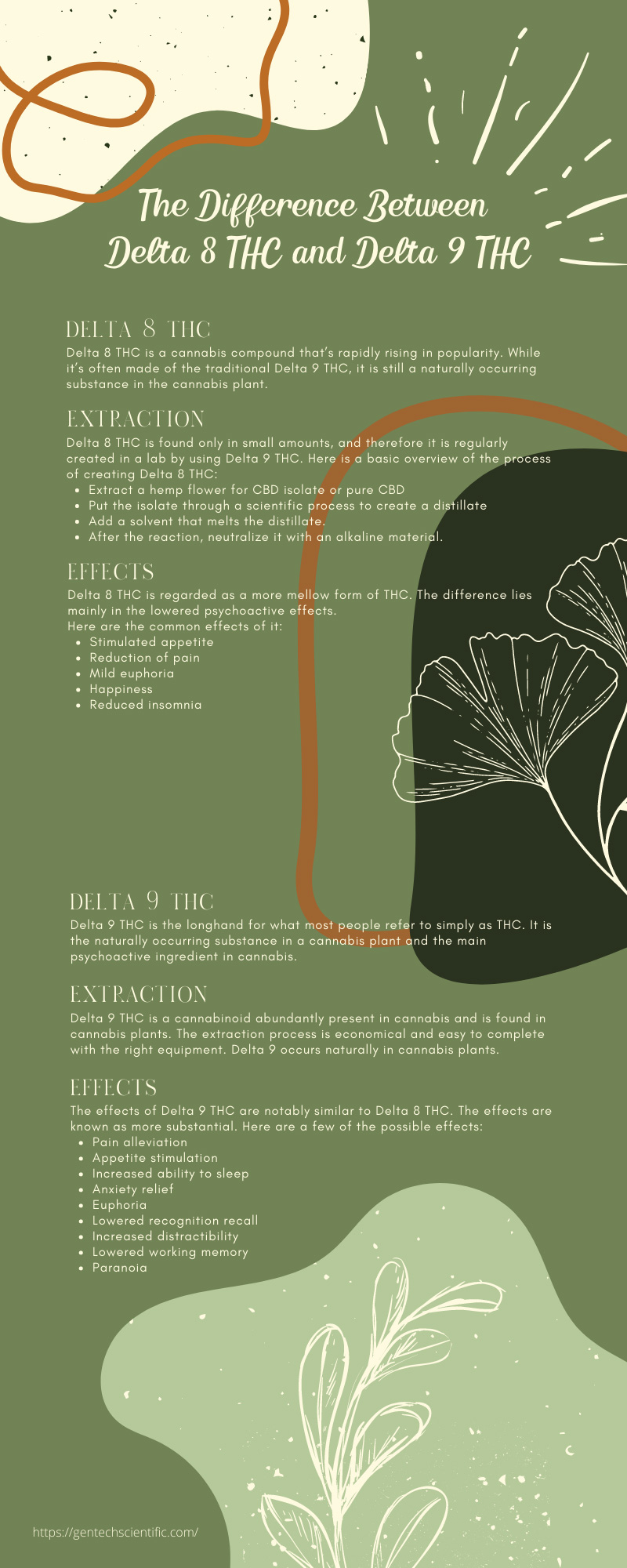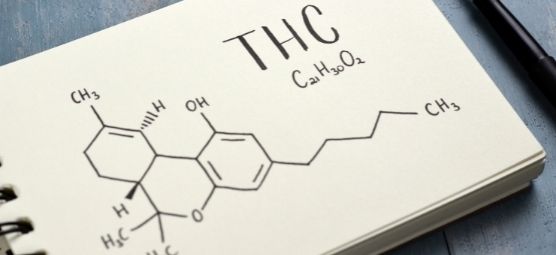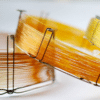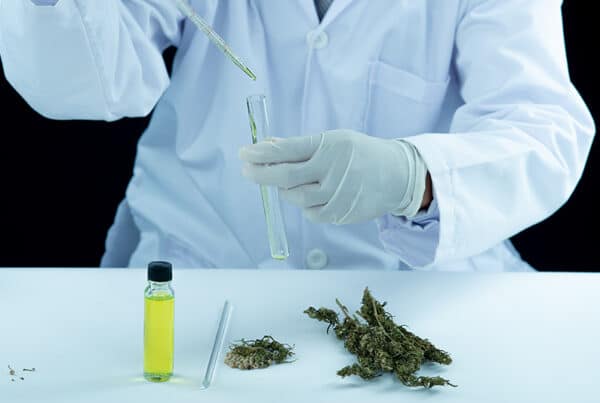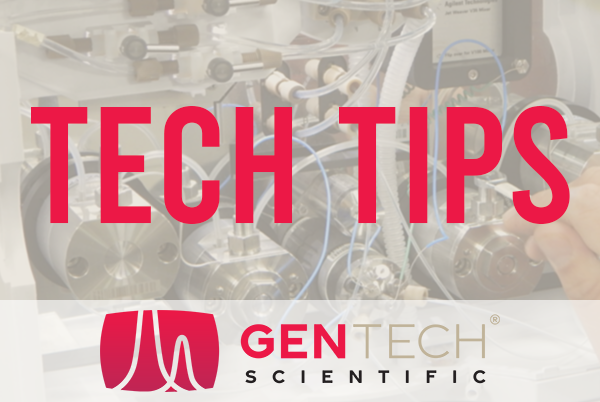While they’re extremely similar in compound and effects, knowing the difference between Delta 8 THC and Delta 9 THC is vital in the creation of products with the cannabis plant. Learn more here.
Delta 8 THC
Delta 8 THC is a cannabis compound that’s rapidly rising in popularity. While it’s often made of the traditional Delta 9 THC, it is still a naturally occurring substance in the cannabis plant. It is revered for its ability to produce similar positive effects to the Delta 9 variant with lower reported negative side effects.
Extraction
Delta 8 THC is naturally occurring in the cannabis plant, but not in as large quantities as the Delta 9 THC. Delta 8 THC is found only in small amounts, and therefore it is regularly created in a lab by using Delta 9 THC. Here is a basic overview of the process of creating Delta 8 THC:
- Extract a hemp flower for CBD isolate or pure CBD
- Put the isolate through a scientific process to create a distillate
- Add a solvent that melts the distillate.
- After the reaction, neutralize it with an alkaline material.
While this process is more complicated than a few bullet points can truly sum up, the end result is typically up to 70 percent Delta 8 THC and up to six percent Delta 9 THC.
Note: The legal limit is 0.3 percent Delta 9 THC. Companies can run their Delta 8 THC through chromatography to remove the Delta 9 THC or dilute it for legal sale.
Effects
Delta 8 THC is fundamentally similar to Delta 9 THC, but the effects tend to differ between the two. Delta 8 THC is regarded as a more mellow form of THC. The difference lies mainly in the lowered psychoactive effects.
Here are the common effects of it:
- Stimulated appetite
- Reduction of pain
- Mild euphoria
- Happiness
- Reduced insomnia
This variant tends to come with lower reports of negative effects often associated with THC, such as paranoia and others.
Products
While the actual product offerings differ by store and purpose, these are a few examples of items consumers can purchase containing Delta 8 THC:
- Vaping cartridges
- Drinks such as seltzers
- Edibles such as cookies, gummy bears, and more
- Oils and lotions
- Capsules
Legality
Delta 8 THC is currently considered legal under federal law. This is due to a loophole in the 2018 Farm Bill which legalized hemp or cannabis plants containing no more than 0.3 percent or Delta 9 THC. This level of Delta 9 THC is considered low enough where no major psychoactive effects occur.
This legality is widely considered a technicality and is still being debated. While it’s likely that future legislation will further regulate the substance, but nothing is in place at this time. It is vital to keep updated on laws both on the federal and the state level to ensure the products a company sells are legal and meet the standards for safe sale and consumption.
Delta 9 THC
Delta 9 THC is the longhand for what most people refer to simply as THC. It is the naturally occurring substance in a cannabis plant and the main psychoactive ingredient in cannabis. In other terms, it is what creates the “high” feeling from cannabis usage.
Extraction
Delta 9 THC is a cannabinoid abundantly present in cannabis and is found in cannabis plants. The extraction process is economical and easy to complete with the right equipment. Delta 9 occurs naturally in cannabis plants. Commonly, Delta 9 THC is referred to as THC. It is what gives people the “high” feeling.
Effects
The effects of Delta 9 THC are notably similar to Delta 8 THC. The effects are known as more substantial. Here are a few of the possible effects:
- Pain alleviation
- Appetite stimulation
- Increased ability to sleep
- Anxiety relief
- Euphoria
- Lowered recognition recall
- Increased distractibility
- Lowered working memory
- Paranoia
People have also reported multiple other effects both positive and negative. While many people experience effects differently, the above list is the most common.
Products
Similar to Delta 8 THC products, the products made with Delta 9 THC vary widely. Here are a few examples:
- Vaping cartridges
- Edibles such as candy and baked goods
- Capsules
- Oils
- Lotions
- Sprays or dissolvable strips
There are many other forms of consumption for Delta 9 THC, but these are a few examples of common products that people consume.
Legality
Delta 9 THC is legal in products up to 0.3 percent. Laws on THC differ greatly state by state and regulations are changing all the time. It’s vital to check with both the state and the federal laws in your area so you stay compliant and legal.
Below is a current list of state laws concerning THC.
States where it’s fully legalized:
- Washington
- Oregon
- California
- Nevada
- Arizona
- New Mexico
- Colorado
- Montana
- South Dakota
- Illinois
- Michigan
- Virginia
- New Jersey
- New York
- Vermont
- Maine
- Massachusetts
- Washington DC
- Alaska
States where it’s medically legal:
- Utah
- North Dakota
- Minnesota
- Iowa (CBD oil only)
- Texas (CBD oil only)
- Oklahoma
- Arkansas
- Louisiana
- Alabama
- Georgia
- Florida
- Kentucky (CBD oil only)
- Indiana (CBD oil only)
- Pennsylvania
- West Virginia
- New Hampshire
- Connecticut
- Rhode Island
- Delaware
- Wisconsin (CBD oil only)
- Hawaii
States where it’s fully illegal:
- Idaho
- Wyoming
- Kansas
- Nebraska
- Tennessee
- South Carolina
The laws are changing continuously. While this guide is accurate as of July 2021, it can change at any time. Always check with your own state before making decisions.
Notable Differences
Delta 8 and Delta 9 THC have a few notable differences. On a molecular level, these two compounds are nearly identical, differing only in a few electrons. A few more key differences are listed below.
Relaxation Effects
Delta 8 THC is known for producing a relaxing effect while Delta 9 THC is likely to take the user as far as elation rather than relaxation.
Paranoia Effects
Delta 9 THC is much more likely to give users a feeling of paranoia. In Delta 8 THC this is far less common because it’s less potent.
Delta 8 THC is well-suited to being created artificially in a lab because the plants produce very low levels of it. If you do this, you can keep the levels of Delta 9 THC under control by finding a reliable gas chromatograph for sale.
